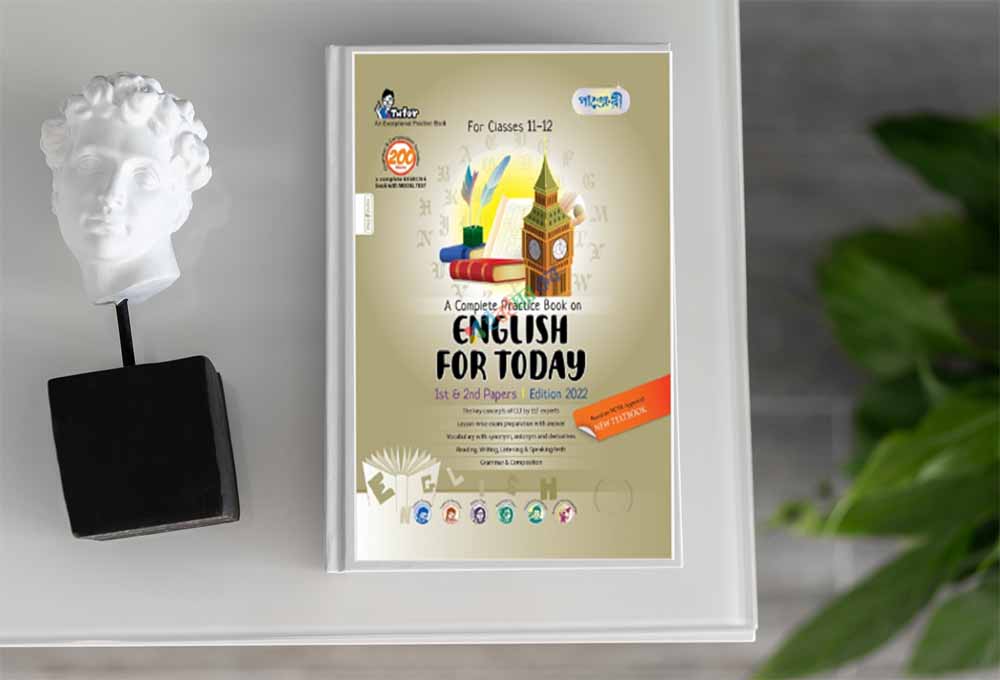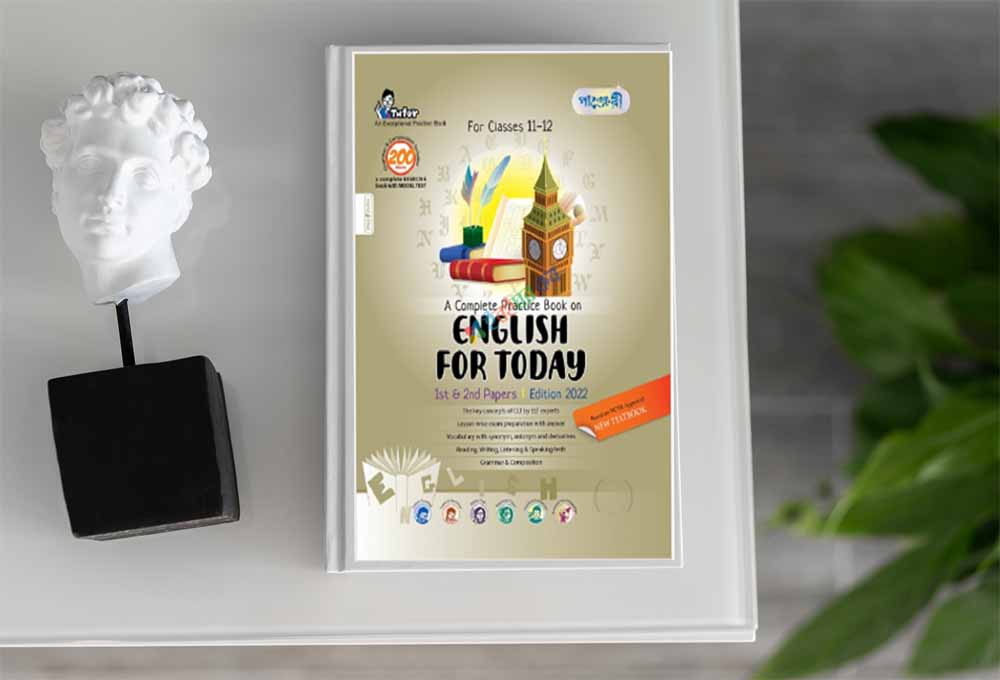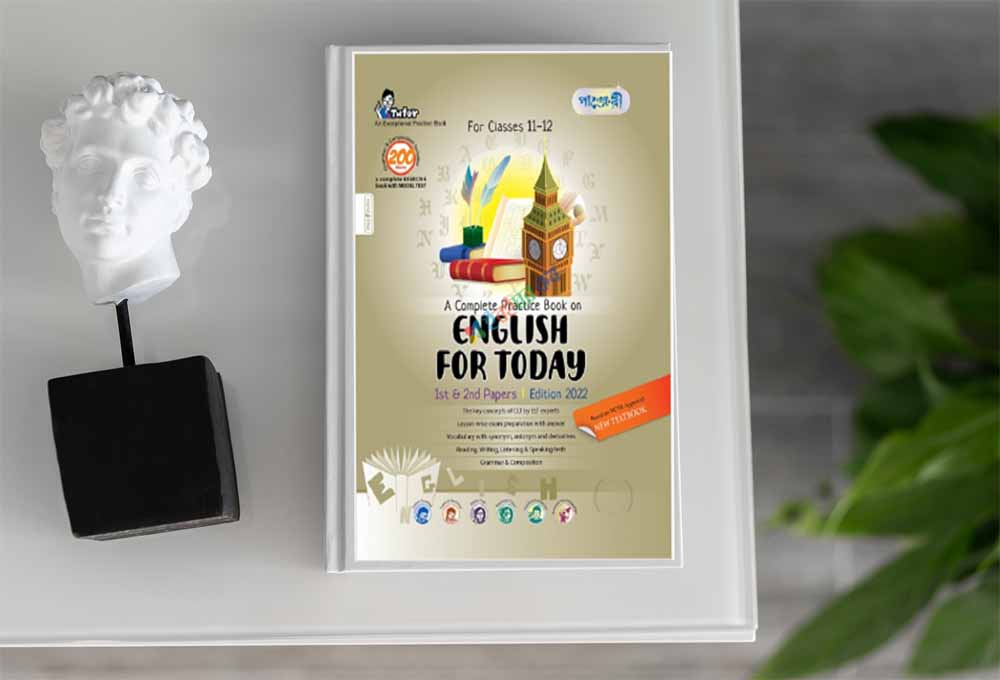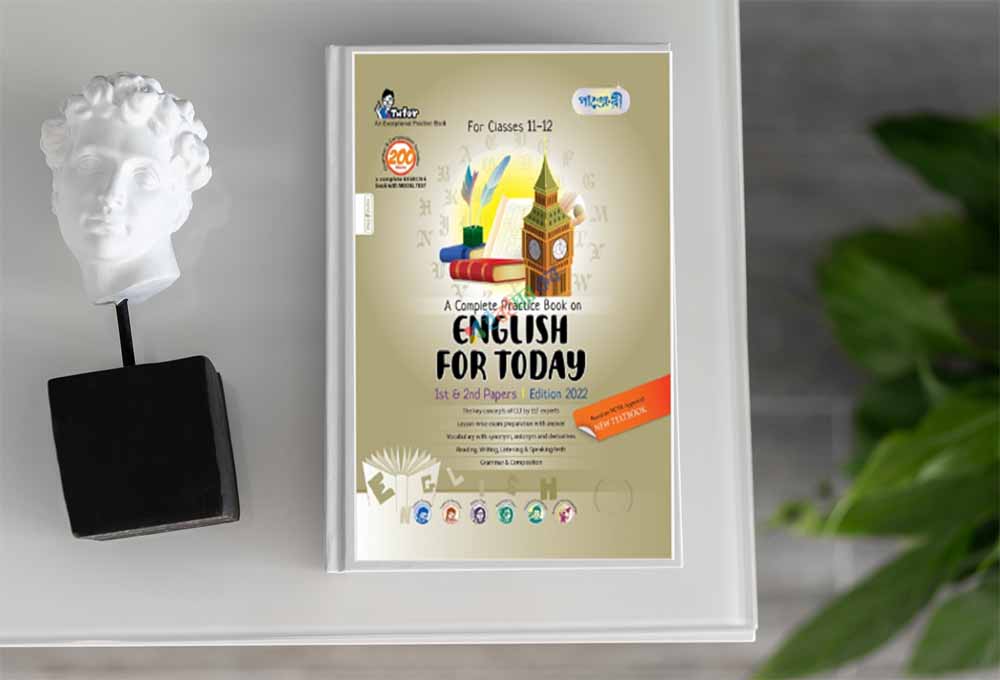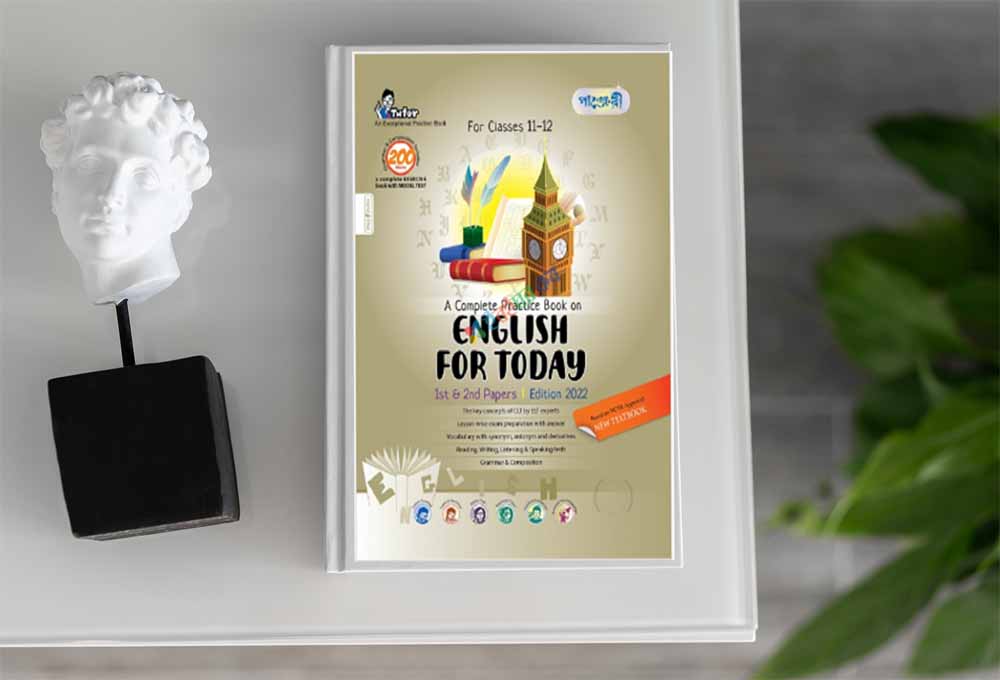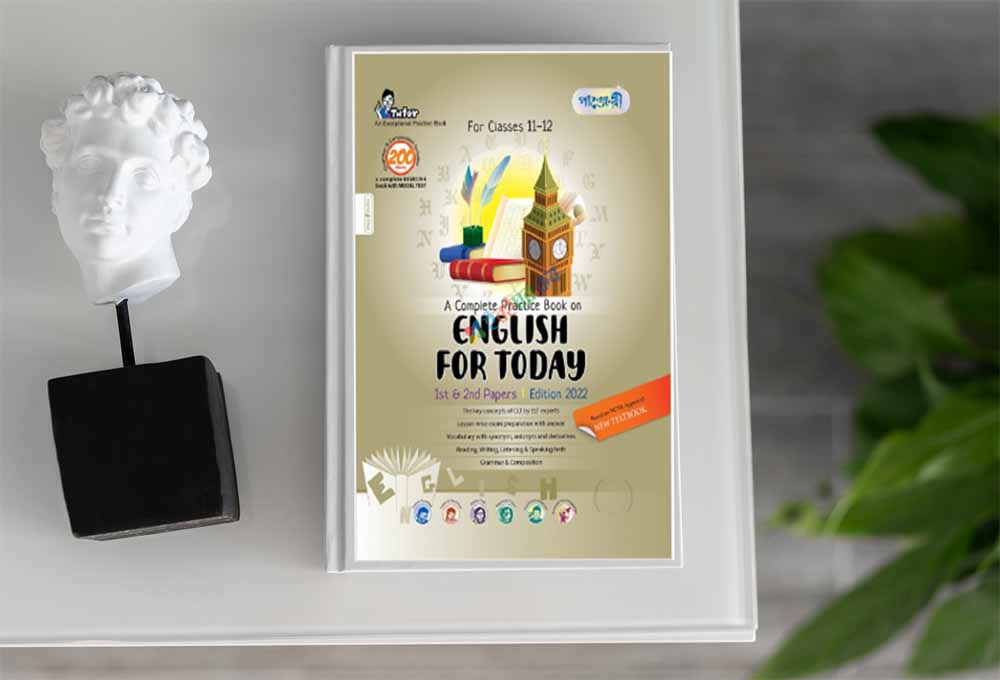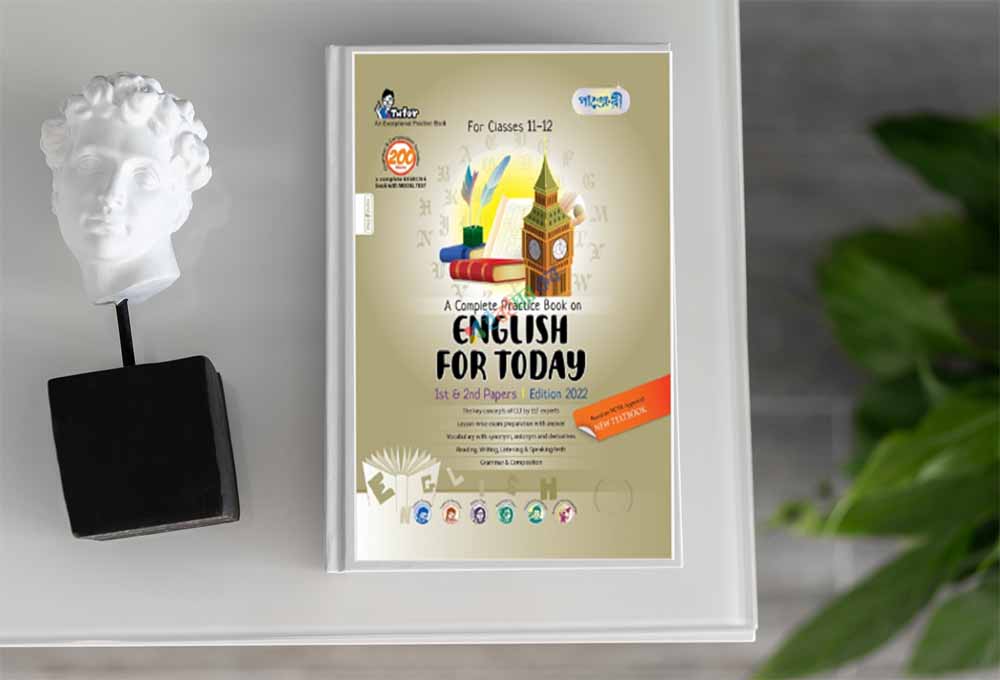HSC | English 2nd Paper | Article Exercises 1-20 | PDF Download : To get the eleven and twelve class English 2nd Paper All Board Article Exercises, come to our website.
English 2nd Paper Article Exercises 1-20
Question No Fill in the blanks in the following texts with articles (a/ an/ the) as necessary. Some of the blanks may not require an article. Put a cross (´) in those blanks. 0.5´10=5
- Fill in the blanks in the following text with articles (a/an/the) as necessary. Some of the blanks may not require an article. Put a cross (×) in those blanks: — [DB-2017]
Patriotism is (a) — noble virtue. It inspires (b) — man to dedicate his life for the freedom of his (c) — country. (d) — man without patriotism is no better than (e) — beast. A true patriot is honoured by (f) — his countrymen. He thinks for (g) — betterment of his country. On (h) — the contrary (i) — unpatriotic man thinks only of his own interest. Those who die for (j) — country are true patriots.
- Fill in the blanks in the following text with articles (a/an/the) as necessary. Some of the blanks may not require an article. Put a cross (×) in those blanks: — [CB-2017]
In (a) — last 25 years (b) — world has lost one-third of its natural wealth, according to (c) — international conservation organization world wild fund. (d) — earth’s forest, wetlands, seas and coasts are in (e) — worse state today than they were before. Forests are cut down. Moreover, they are being burnt indiscriminately resulting in (f) — increase in carbon-di-oxide and ultimately in (g) — water level rising as a consequence of global warming. It is anticipated that (h) — new century will face (i) — overwhelming environmental (j) — catastrophe.
- Fill in the blanks in the following text with articles as necessary. Some of the blanks may not require an article. Put a cross (×) in those blanks: — [RB-2017]
Truthfulness is (a) — greatest of all (b) — virtues which makes (c) — man really great. If we do not cultivate the habit of speaking (d) — truth, we cannot command (e) — confidence of others. (f) — man whom nobody believes can never be great in life. We might succeed once or twice by telling (g) — lie but it never brings a good result. (h) — lie never lies hidden. Today or tomorrow it comes to light. Then (i) — real character of (j) — liar is revealed and nobody believes him.
- Fill in the blanks in the following text with articles (a/an/the) as necessary. Some of the blanks may not require an article. Put a cross (×) in those blanks: — [DjB-2017]
What (a) — surprise it was! Robin got (b) — first prize in (c) — competition. I was really (d) — amazed at his success. Of course he was trained by (e) — expert coach for (f) — time. He always obeyed (g) — instructions given by (h) — coach. Even he was not found outside (i) — camp during practice session. (j) — boy like him is always appreciated by people.
- Fill in the blanks in the following text with articles (a/an/the) as necessary. Some of the blanks may not require an article. Put a cross (×) in those blanks: — [JB-2017]
The process of learning may very well be compared to (a) — undertaking of a journey. The learner or the student is (b) — journey taker or traveller. Just as a traveller has to undergo all (c) — botheration of buying his ticket, booking his baggage, showing up his ticket, taking core of things, boarding a train or a bus and suffering every other item of (d) — tedious journey to reach his (e) — destination, so a learner has to mange his learning affair himself. It is (f) — labourious process and no one can do (g) — labour for him and no one else can undertake (h) — journey for another. There is no trick or magic in it. It cannot be enquired at second hand. Just as a traveller, he can enquire here and there in case of doubt and difficulty. However, the journey is (i) — passenger’s own concern. In (j) — same way, learning is entirely the concern of the student or the learner.
- Fill in the blanks with articles. Use a cross (´) mark where an article is not necessary. [CtgB-2017]
‘Rifle Roti Aurat’ is (a) — first Bengali novel on (b) — Liberation War of Bangladesh. This unique novel is written by Anwar Pasha, (c) — Professor of Bangla department at Dhaka University. He wrote this (d) — novel between April and June in 1971. The main characters in this novel is Sudipta Shaheen who shares his dream of (e) — new country. Professor Anwar Pasha was picked up from his Dhaka University residence two days before (f) — victory. Sensing imminent defeat, the members of (g) — notorious killing squad Al-Badr picked up (h) — novelist Anwar Pasha and many other intellectuals and brutally killed them. According to (i) — Banglapedia, around 991 academics, 13 journalists, 49 physicians, 42 lawyers, and 16 other intellectuals were killed during (j) — Liberation War of Bangladesh.
- Fill in the blanks in the following text with articles as necessary. Some of the blanks may not require an article. Put a cross (×) in those blanks: — [SB-2017]
Robi is (a) — indigent boy. He comes of (b) — needy family. But he is diligent and upright. He has (c) — unique vision for life. He believes that honesty is (d) — key to success. Moreover, he has (e) — deep sense of patriotism. Being imbued with these ideals, he shapes (f) — dream of his life. From (g) — dawn to dusk, he works hard. He never squanders time, wastes money and dissipates (h) — energy. His only aim is to reach (i) — apex of success. We need (j) — ideal boy like Robi.
- Fill in the blanks in the following text with articles (a/an/the) as necessary. Some of the blanks may not require an article. Put a cross (×) in those blanks: — [BB-2017]
Truthfulness is (a) — greatest of all (b) — virtues which makes (c) — person really great. If we do not cultivate (d) — habit of speaking (e) — truth, we cannot command (f) — trust of others. The man whom nobody believes can never be famous in life. It may be that we may succeed once or twice by telling (g) — lie but it never brings about (h) — good result. A lie never lies hidden. Today or tomorrow it comes to light. Then (i) — real character of (j) — liar is revealed and nobody believes him.
- Fill in the blanks in the following text with articles (a/an/the) as necessary. Some of the blanks may not require an article. Put a cross (×) in those blanks: — [DB-2016]
Michael Madhusudan Dutt was (a) — popular 19th century Bengali poet and dramatist. He was born in (b) — Sagardari on (c) — bank of (d) — Kopotaksho river, (e) — village in Keshobpur Upazilla under Jessore district. From (f) — early age, Dutt aspired to be (g) — Englishman in form and manner. Though he was born in (h) — sophisticated Hindu family, he took Christianity arousing (i) — anger of his family. He contributed much to (j) — development of Bengali literature.
- Fill in the blanks in the following text with articles (a/an/the) as necessary. Some of the blanks may not require an article. Put a cross (´) in those blanks : —
[CB-2016]
My mother is (a) — ideal housewife. She is (b) — affectionate lady. She manages (c) — family very nicely. She hopes to see me happy at (d) — cost of her own life. She does not enjoy (e) — wink of sleep if I fall sick. She is very kind to (f) — poor. She is also (g) — very religious lady. She advises us to follow (h) — path of truth and honesty. (i) — woman like her is very rare. She bears a good moral (j) — character.
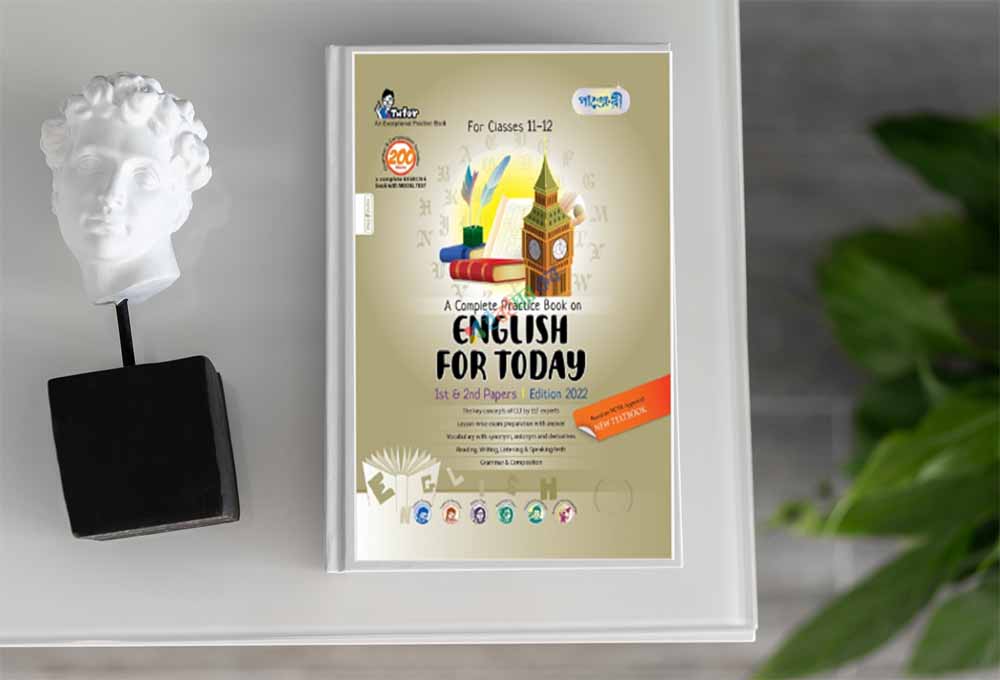
- Fill in the blanks in the following text with articles (a/an/the) as necessary. Some of the blanks may not require an article. Put a cross (×) in those blanks:—
[RB-2016]
Every student wants to do better in (a) — examination. But it is not (b) — easy work. (c) — student has to do something for this. From (d) — very beginning he must be serious. He should read (e) — texts again and again. He must not memorize (f) — answer without knowing the meaning. He must not make notes from (g) — common source. He should have a good (h) — command over English. By doing all these things (i) — student can hope to make a good (j) — result.
- Fill in the blanks in the following texts with articles (a/an/the) as necessary. Some of the blanks may not require an article. Put a cross mark (×) in those blanks:— [DjB-2016]
(a) ¾ morning walk is a good habit for all classes of people. It is (b) ¾ simple exercise and good for health and (c) ¾ mentality. In the morning (d) ¾ air is fresh and free from any kind of noise and pollution. This pure (e) ¾ environment makes an effect on (f) ¾ walker’s health and mind when (g) ¾ man enjoys (h) ¾ beauties and solemnity of (i) ¾ nature in (j) ¾ morning.
- Fill in the blanks in the following texts with articles (a/an/the) as necessary. Some of the blanks may not require an article. Put a cross (×) in those blanks: — [JB-2016]
Literacy as (a) ¾ skill was first institutionalized in Mesopotamia, Syria, Egypt and China soon after (b) ¾ art of writing was invented. Then education was not for (c) ¾ general people but (d) ¾ privilege for (e) ¾ chosen (f) ¾ few who took on strategic roles in (g) ¾ running of (h) ¾ state and in religion. In Greece, education became more widespread in about the 5th century BC. (i) ¾ Greeks, however, sent only their (j) ¾ male children to school.
- Fill in the blanks in the following text with articles (a/an/the) as necessary. Some of the blanks may not require an article. Put a cross (´) in those blanks : — [CtgB-2016]
There is a saying that sincerity is (a) — key to success. (b) — person can prosper in life by doing hard work. The man who does not follow (c) — rules of sincerity can never go (d) — long way in (e) — world. Many (f) — man is not conscious of (g) — importance of (h) — sincerity for which they don’t have (i) — benefit of (j) — success. However, we should be sincere to our work if we want to achieve anything notable.
- Fill in the blanks in the following text with articles (a/an/the) as necessary. Some of the blanks may not require an article. Put a cross (´) in those blanks : — [SB-2016]
Kamal is (a) — HSC examinee this year. He is not (b) — attentive to his lessons. He is very weak in (c) — English. Moreover he is (d) — lazy. So his preparation in English is not good. (e) — month ago before his examination he managed (f) — short suggestion and learnt it. On (g) — day of examination he started for the examination hall (h) — bit earlier. He entered (i) — examination hall with (j) — trembling heart.
- Fill in the blanks with articles. Use cross (×) mark where an article is not necessary: — [BB-2016]
Once there lived (a) ¾ poor cobbler. He had (b) ¾ rich neighbour. (c) ¾ neighbour possessed (d) ¾ ill-health. So, he was (e) ¾ angry man. He was always (f) ¾ unhappy man. Once he used to think (g) ¾ richest men to be (h) ¾ happiest men in (i) ¾ world. But his (j) ¾ idea was wrong.
- Fill in the blanks in the following texts with articles (a/an/the) as necessary. Some of the blanks may not require an article. Put a cross (´) in those blanks. [DB-2015]
Industry is (a) — key to success. (b) — industrious can prosper in life. (c) — man who does not undertake (d) — hard-work can never go (e) — long way in (f) — world. Many (g) — man is not conscious of (h) — importance of (i) — diligence for which they can’t reap (j) — benefit of success.
HSC English 1st paper model question with answer pdf 48-51
HSC English 1st paper model question with answer pdf-67-68
HSC English 1st paper model question with answer pdf 52-56
HSC English 2nd Paper Model Question With Answer Sheet pdf-1
HSC English 2nd Paper Model Question With Answer Sheet pdf-2
- Fill in the blanks in the following texts with articles (a/an/the) as necessary. Some of the blanks may not require an article. Put a cross (´) in those blanks. [CB-2015]
(a) — discipline is seen even in (b) — nature. Every morning (c) — sun rises in (d) — east. Day follows (e) — night, birds sing and (f) — plants blossom. Everywhere in (g) — nature, there is (h) — harmony. If there was no discipline in (i) — nature, there would have been (j) — chaos everywhere.
- Fill in the blanks in the following texts with articles (a/an/the) as necessary. Some of the blanks may not require an article. Put a cross (´) in those blanks. [RB-2015]
Long long ago, (a) — mirror was found in (b) — paddy field by (c) — farmer. Neither this farmer nor anybody else in (d) — area had ever seen (e) — mirror. So, when (f) — farmer looked into (g) — mirror, he was surprised to see (h) — man looking straight at him. Now, this farmer very much resembled his father who had died (i) — years ago. He thought that it was his father inside it and saluted him with (j) — love and respect.
- Fill in the blanks in the following texts with articles (a/an/the) as necessary. Some of the blanks may not require an article. Put a cross (´) in those blanks. [DjB-2015]
Ferdousi, (a) — great poet, began to write (b) — Shahnama and the Sultan promised him (c) — piece of gold for each (d) — verse. (e) — epic contained sixty thousand (f) — verses. But instead of gold coins, he offered the poet only sixty thousands silver (g) — coins. So, the poet refused to accept the silver coins and left the court with (h) — broken heart. He was (i) — aggrieved man. Later on, the Sultan realised that he had made (j) — blunder.
If you know anything about the subject, you can comment here.
Click here to join us on YouTube channel and click here to join us on Facebook page. Visit our website for important updates and information.


